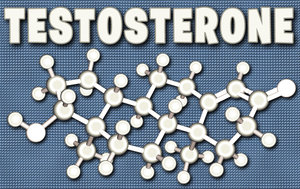Introduction to Premature Ejaculation
Premature ejaculation (PE) is a common sexual dysfunction among American men, characterized by an inability to delay ejaculation during sexual intercourse, resulting in distress and dissatisfaction for both partners. While PE can be a source of frustration and embarrassment, it is important to recognize that it is a treatable condition. The journey toward overcoming PE is not one that a man must face alone; rather, it can be a shared path with his partner, fostering greater intimacy and understanding.
Understanding the Impact on Relationships
The effects of PE extend beyond the individual, often straining the emotional and physical connection between partners. It can lead to feelings of inadequacy, anxiety, and a decrease in sexual satisfaction. However, when couples approach the issue together, they can transform a potential point of contention into an opportunity for growth and deeper connection.
The Importance of Open Communication
**Open communication** is the cornerstone of addressing PE as a couple. It is essential for partners to discuss their feelings, concerns, and desires openly and without judgment. This dialogue can help demystify the condition and reduce the stigma associated with it. By expressing empathy and support, the non-affected partner can play a crucial role in alleviating the affected partner's anxiety, which is often a contributing factor to PE.
Joint Strategies for Managing PE
Couples can employ various strategies to manage PE together. **Behavioral techniques**, such as the start-stop method or the squeeze technique, can be practiced during intimacy to help the man gain better control over his ejaculation. These methods require patience and cooperation from both partners, turning the process into a collaborative effort.
Incorporating Relaxation and Mindfulness
**Relaxation and mindfulness** practices can also be beneficial. Techniques such as deep breathing, meditation, and yoga can help reduce performance anxiety and improve overall sexual function. When practiced together, these activities can enhance the couple's bond and create a more relaxed atmosphere during sexual encounters.
Seeking Professional Guidance
For some couples, seeking **professional guidance** from a sex therapist or a healthcare provider specializing in sexual health can be invaluable. These professionals can offer personalized advice, recommend treatments such as medication or therapy, and provide a safe space for couples to explore their concerns. Engaging in therapy as a couple can also strengthen the relationship by improving communication and understanding.
The Role of the Partner in Treatment
The partner's role in the treatment of PE cannot be overstated. By participating in the treatment process, the partner can provide encouragement and support, which can significantly enhance the effectiveness of any intervention. The partner can also help monitor progress and celebrate milestones, reinforcing the notion that overcoming PE is a shared victory.
Building a Supportive Environment
Creating a **supportive environment** at home is crucial. This involves fostering a non-judgmental atmosphere where both partners feel safe to express their needs and concerns. It also means being patient and understanding that progress may be gradual. By focusing on the journey rather than the destination, couples can maintain a positive outlook and continue to support each other through the ups and downs.
Conclusion: Strengthening Bonds Through Shared Challenges
In conclusion, premature ejaculation is a challenge that can be met head-on by couples working together. By embracing open communication, practicing joint strategies, and seeking professional help when needed, couples can not only address PE but also strengthen their relationship. The journey toward overcoming PE can become a testament to the power of partnership, ultimately leading to a more fulfilling and satisfying intimate life.
Contact Us Today For A Free Consultation

- Mastering the Clock: Hormonal Influences on Ejaculatory Timing and Premature Ejaculation in American Males [Last Updated On: February 18th, 2025] [Originally Added On: February 18th, 2025]
- Understanding Premature Ejaculation: Facts, Myths, and Effective Treatments for American Men [Last Updated On: February 24th, 2025] [Originally Added On: February 24th, 2025]
- Decoding the Blink-and-Miss Syndrome: A Comprehensive Understanding of Premature Ejaculation [Last Updated On: February 25th, 2025] [Originally Added On: February 25th, 2025]
- Exploring the Enigma: Unraveling the Science Behind Premature Ejaculation [Last Updated On: February 26th, 2025] [Originally Added On: February 26th, 2025]
- Delineating Triggers: Understanding the Mechanisms Behind Premature Ejaculation [Last Updated On: February 27th, 2025] [Originally Added On: February 27th, 2025]
- Unplumbed Depths: The Psychological Underpinnings of Premature Ejaculation [Last Updated On: February 28th, 2025] [Originally Added On: February 28th, 2025]
- Mastering the Art of Endurance: Sustainable Strategies for Delayed Ejaculation [Last Updated On: February 28th, 2025] [Originally Added On: February 28th, 2025]
- Decoding the Dynamics: Understanding Premature Ejaculation Beyond Stereotypes [Last Updated On: March 1st, 2025] [Originally Added On: March 1st, 2025]
- The Incessant Walk in the Dark: Understanding Premature Ejaculation [Last Updated On: March 2nd, 2025] [Originally Added On: March 2nd, 2025]
- Exploring Premature Ejaculation: Causes, Impacts, and Management Strategies for Improved Sexual Health [Last Updated On: March 3rd, 2025] [Originally Added On: March 3rd, 2025]
- Unraveling the Mystery: A Comprehensive Look at Premature Ejaculation in American Men [Last Updated On: March 4th, 2025] [Originally Added On: March 4th, 2025]
- Understanding Premature Ejaculation: Impacts and Treatment Options [Last Updated On: March 4th, 2025] [Originally Added On: March 4th, 2025]
- Understanding and Managing Premature Ejaculation: Causes, Impacts, and Treatment Options [Last Updated On: March 5th, 2025] [Originally Added On: March 5th, 2025]
- Understanding and Managing Delayed Ejaculation: Causes and Behavioral Strategies [Last Updated On: March 6th, 2025] [Originally Added On: March 6th, 2025]
- The Psychological Impact of Performance Anxiety on Premature Ejaculation: Strategies for Management [Last Updated On: March 7th, 2025] [Originally Added On: March 7th, 2025]
- Comprehensive Guide to Understanding and Managing Premature Ejaculation: Causes, Diagnosis, and Treatment [Last Updated On: March 8th, 2025] [Originally Added On: March 8th, 2025]
- Natural Remedies for Premature Ejaculation: Techniques, Exercises, and Herbal Solutions Explored [Last Updated On: March 9th, 2025] [Originally Added On: March 9th, 2025]
- Exploring the Dual Impact of Erectile Dysfunction Medications on Premature Ejaculation: A Comprehensive Analysis [Last Updated On: March 12th, 2025] [Originally Added On: March 12th, 2025]
- Mastering the Art of Ejaculatory Control: Techniques for American Males [Last Updated On: March 13th, 2025] [Originally Added On: March 13th, 2025]
- Mindfulness Mastery: Enhancing Sexual Endurance and Overcoming Premature Ejaculation [Last Updated On: March 15th, 2025] [Originally Added On: March 15th, 2025]
- Managing Premature Ejaculation in Casual Dating: Strategies for American Males [Last Updated On: March 18th, 2025] [Originally Added On: March 18th, 2025]
- Anxiety's Role in Fueling Premature Ejaculation Among American Men: Causes and Treatments [Last Updated On: March 18th, 2025] [Originally Added On: March 18th, 2025]
- Lifestyle Changes to Manage Premature Ejaculation in American Males [Last Updated On: March 18th, 2025] [Originally Added On: March 18th, 2025]
- Managing Premature Ejaculation: Communication, Treatment, and Therapy for Couples [Last Updated On: March 18th, 2025] [Originally Added On: March 18th, 2025]
- Understanding and Treating Premature Ejaculation: A Comprehensive Guide [Last Updated On: March 19th, 2025] [Originally Added On: March 19th, 2025]
- Nervous System's Role in Ejaculation and Premature Ejaculation in American Males [Last Updated On: March 19th, 2025] [Originally Added On: March 19th, 2025]
- Countdown Challenge: Enhancing Ejaculatory Control in American Males [Last Updated On: March 19th, 2025] [Originally Added On: March 19th, 2025]
- Premature Ejaculation's Social Impact on American Men: Relationships, Self-Esteem, and Stigma [Last Updated On: March 20th, 2025] [Originally Added On: March 20th, 2025]
- Mastering Premature Ejaculation: Effective Techniques and the Power of Pause [Last Updated On: March 21st, 2025] [Originally Added On: March 21st, 2025]
- Psychological Strategies for Managing Premature Ejaculation in American Men [Last Updated On: March 21st, 2025] [Originally Added On: March 21st, 2025]
- Overcoming Premature Ejaculation: Holistic Strategies for Enhanced Intimacy and Control [Last Updated On: March 21st, 2025] [Originally Added On: March 21st, 2025]
- Premature Ejaculation: Emotional, Financial Impacts and Treatment Options for American Men [Last Updated On: March 21st, 2025] [Originally Added On: March 21st, 2025]
- Understanding and Managing Premature Ejaculation: Causes, Treatments, and Lifestyle Tips [Last Updated On: March 22nd, 2025] [Originally Added On: March 22nd, 2025]
- Mastering Premature Ejaculation: Comprehensive Strategies for American Males [Last Updated On: March 22nd, 2025] [Originally Added On: March 22nd, 2025]
- Innovative Strategies to Delay Ejaculation: Advances in Premature Ejaculation Research [Last Updated On: March 22nd, 2025] [Originally Added On: March 22nd, 2025]
- Dietary Strategies to Manage Premature Ejaculation: Key Foods and Practical Tips [Last Updated On: March 22nd, 2025] [Originally Added On: March 22nd, 2025]
- Managing Premature Ejaculation: Psychological, Pharmacological, and Behavioral Approaches [Last Updated On: March 22nd, 2025] [Originally Added On: March 22nd, 2025]
- Premature Ejaculation: Understanding, Treating, and Overcoming the Common Sexual Dysfunction [Last Updated On: March 23rd, 2025] [Originally Added On: March 23rd, 2025]
- Understanding Sexual Arousal and Managing Premature Ejaculation in American Men [Last Updated On: March 24th, 2025] [Originally Added On: March 24th, 2025]
- Exercise and Premature Ejaculation: Enhancing Sexual Health Through Physical Fitness [Last Updated On: March 24th, 2025] [Originally Added On: March 24th, 2025]
- Stress Reduction Strategies for Managing Premature Ejaculation in American Men [Last Updated On: March 24th, 2025] [Originally Added On: March 24th, 2025]
- Ejaculatory Control: Understanding and Managing Premature Ejaculation in American Men [Last Updated On: March 24th, 2025] [Originally Added On: March 24th, 2025]
- Restorative Sleep Enhances Sexual Stamina, Mitigates Premature Ejaculation in American Males [Last Updated On: March 24th, 2025] [Originally Added On: March 24th, 2025]
- Managing Premature Ejaculation Through Open Communication and Mutual Support [Last Updated On: March 24th, 2025] [Originally Added On: March 24th, 2025]
- Medications Impacting Ejaculatory Speed: Insights into PE Treatment Options [Last Updated On: March 24th, 2025] [Originally Added On: March 24th, 2025]
- Managing Premature Ejaculation: Innovative Digital Tools for American Men [Last Updated On: March 24th, 2025] [Originally Added On: March 24th, 2025]
- Managing Premature Ejaculation: Techniques and Holistic Approaches for American Men [Last Updated On: March 25th, 2025] [Originally Added On: March 25th, 2025]
- Managing Premature Ejaculation: Self-Help Resources and Techniques for American Men [Last Updated On: March 25th, 2025] [Originally Added On: March 25th, 2025]
- Managing Premature Ejaculation: Strategies for Men Across All Ages [Last Updated On: March 25th, 2025] [Originally Added On: March 25th, 2025]
- Managing Premature Ejaculation: One Man's Journey to Sexual Health and Confidence [Last Updated On: March 25th, 2025] [Originally Added On: March 25th, 2025]
- Mastering Foreplay to Manage Premature Ejaculation: Techniques and Strategies [Last Updated On: March 25th, 2025] [Originally Added On: March 25th, 2025]
- Behavioral Techniques for Managing Premature Ejaculation in American Men [Last Updated On: March 25th, 2025] [Originally Added On: March 25th, 2025]
- Overcoming Premature Ejaculation: Real-Life Success Stories and Effective Strategies [Last Updated On: March 25th, 2025] [Originally Added On: March 25th, 2025]
- Premature Ejaculation: Global Insights, Treatment Options, and Reducing Stigma in the U.S. [Last Updated On: March 25th, 2025] [Originally Added On: March 25th, 2025]
- Managing Premature Ejaculation: A Holistic Approach for American Males [Last Updated On: March 26th, 2025] [Originally Added On: March 26th, 2025]
- Understanding and Overcoming Premature Ejaculation: Breaking the Stigma [Last Updated On: March 26th, 2025] [Originally Added On: March 26th, 2025]
- Transforming Premature Ejaculation into Enhanced Intimacy and Emotional Connection [Last Updated On: March 26th, 2025] [Originally Added On: March 26th, 2025]
- Managing Premature Ejaculation: Psychological, Biological, and Strategic Approaches for American Men [Last Updated On: March 26th, 2025] [Originally Added On: March 26th, 2025]
- Understanding and Treating Premature Ejaculation: Biological and Psychological Approaches [Last Updated On: March 26th, 2025] [Originally Added On: March 26th, 2025]
- Biofeedback: A Non-Invasive Solution for Premature Ejaculation in American Men [Last Updated On: March 26th, 2025] [Originally Added On: March 26th, 2025]
- Managing Premature Ejaculation: Holistic Approaches Beyond Medication [Last Updated On: March 26th, 2025] [Originally Added On: March 26th, 2025]
- Herbal Remedies for Premature Ejaculation: Efficacy and Safety for American Men [Last Updated On: March 26th, 2025] [Originally Added On: March 26th, 2025]
- Enhancing Sexual Endurance: Techniques and Patience for Overcoming Premature Ejaculation [Last Updated On: March 26th, 2025] [Originally Added On: March 26th, 2025]
- CBT: A Holistic Approach to Managing Premature Ejaculation in American Males [Last Updated On: March 27th, 2025] [Originally Added On: March 27th, 2025]
- Understanding and Managing Premature Ejaculation in American Men: Causes and Strategies [Last Updated On: March 28th, 2025] [Originally Added On: March 28th, 2025]
- Effective Strategies to Combat Premature Ejaculation and Boost Sexual Stamina [Last Updated On: March 28th, 2025] [Originally Added On: March 28th, 2025]
- Exploring the Interplay of ED and PE in American Men: Impacts and Treatments [Last Updated On: March 29th, 2025] [Originally Added On: March 29th, 2025]
- Managing Premature Ejaculation: Holistic Strategies for American Men's Sexual Health [Last Updated On: March 29th, 2025] [Originally Added On: March 29th, 2025]
- Managing Premature Ejaculation: Techniques, Therapies, and Lifestyle Changes for American Men [Last Updated On: March 29th, 2025] [Originally Added On: March 29th, 2025]
- Premature Ejaculation: Causes, Diagnosis, and Effective Management Strategies [Last Updated On: March 30th, 2025] [Originally Added On: March 30th, 2025]
- Managing Premature Ejaculation: Treatments and Strategies for American Men [Last Updated On: March 30th, 2025] [Originally Added On: March 30th, 2025]
- New Treatments for Premature Ejaculation: Options for American Males [Last Updated On: April 2nd, 2025] [Originally Added On: April 2nd, 2025]
- Controlled Breathing: A Natural Solution for Premature Ejaculation in American Men [Last Updated On: April 4th, 2025] [Originally Added On: April 4th, 2025]
- Overcoming Premature Ejaculation: American Men's Journey to Sexual Health and Confidence [Last Updated On: April 4th, 2025] [Originally Added On: April 4th, 2025]
- Testosterone's Role in Ejaculatory Control and Premature Ejaculation in American Males [Last Updated On: April 6th, 2025] [Originally Added On: April 6th, 2025]
- Exploring Premature Ejaculation's Link to Prostate Health: Insights and Management [Last Updated On: April 6th, 2025] [Originally Added On: April 6th, 2025]
- Understanding and Managing Premature Ejaculation: Causes, Treatments, and Holistic Approaches [Last Updated On: April 7th, 2025] [Originally Added On: April 7th, 2025]
- Mastering Premature Ejaculation: Integrating Art, Science, and Therapy for American Men [Last Updated On: April 9th, 2025] [Originally Added On: April 9th, 2025]
- Strategies to Overcome Premature Ejaculation: A Holistic Approach for American Men [Last Updated On: April 9th, 2025] [Originally Added On: April 9th, 2025]
- Mastering Ejaculation Control: Techniques and Strategies for American Men [Last Updated On: April 9th, 2025] [Originally Added On: April 9th, 2025]
Word Count: 581





















